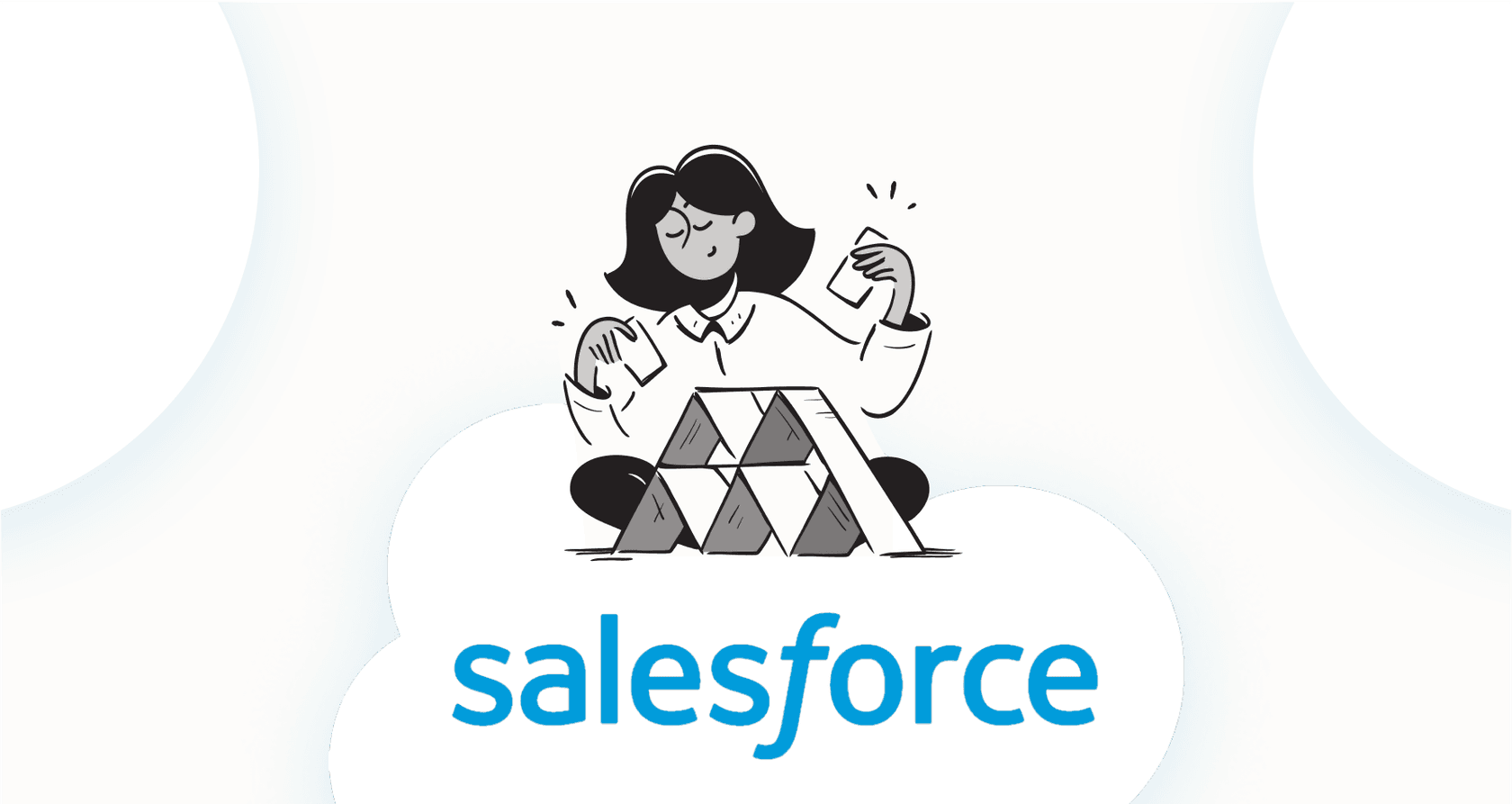
If you’re dipping your toes into the Salesforce world, the whole "coding" question is probably nagging at you. Add AI to the conversation, and it’s easy to think you’ll need a computer science degree just to keep up. So, let's get straight to it: does Salesforce AI require coding?
The short answer is: it depends. The Salesforce platform is huge, and there are different paths for different people.
This guide is here to clear the air. We’ll break down which parts of Salesforce AI are built for clicks, not code, and where you'll need to roll up your sleeves with languages like Apex. Whether you're an admin, a developer, or just trying to figure it all out, you’ll get a clear picture of what it takes to use AI in Salesforce.
What is Salesforce AI?
First things first, Salesforce AI isn’t a single product. It’s a collection of technologies, mostly under the "Einstein" brand, that are sprinkled throughout the entire platform. Think of it as a smart layer that helps out with sales, service, marketing, and everything in between. The main goal is to make everyone’s job a little easier, whether they’re technical or not.
You'll probably hear about these core components the most:
-
Agent builder: This is a tool for creating your own AI agents and copilots that can handle specific tasks and customer conversations.
-
Prompt builder: This lets you design reusable, data-driven prompts with a simple point-and-click interface. It helps you get consistent AI responses without writing any code.
-
Model builder: This tool lets you use your own predictive AI models or connect to third-party ones right inside the Salesforce environment.
-
Einstein for developers: A dedicated AI assistant that works inside your code editor to help write, explain, and test code in Apex and other Salesforce languages.
These tools are all designed to make AI more accessible, but how much technical skill you need really changes depending on what you're trying to do.
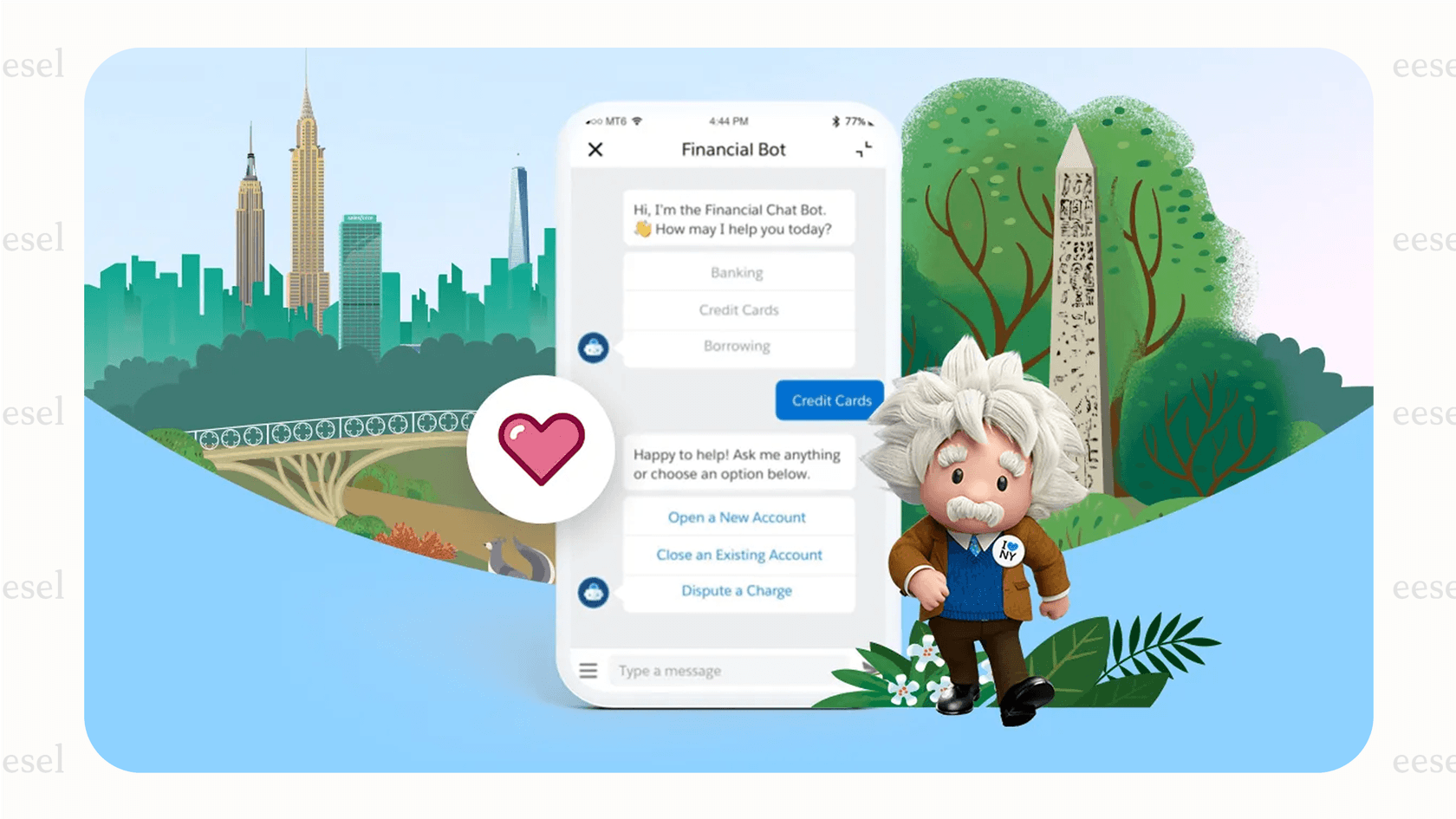
The no-code answer to 'Does Salesforce AI require coding'
Let's start with the good news: you can get a whole lot done with Salesforce AI without ever writing a single line of code. Many of its best features are built for non-developers, using the same point-and-click style that made Salesforce so popular with admins and business users in the first place.
For Salesforce admins: The answer to 'Does Salesforce AI require coding'
If you’re a Salesforce Administrator, you already live in a world of declarative tools, and AI is just another extension of that. Instead of writing code, you’ll be setting up AI features within the standard Salesforce interface you already know.
For instance, you can:
-
Use the Prompt builder to create templates that can automatically summarize a long, complicated support case for an agent or draft a personalized email for a sales rep.
-
Bring AI into your workflows with Flow builder. You can now even generate automations just by describing what you want in plain English.
-
Set up AI-powered predictions for things like sales forecasts or which customers might be at risk of leaving, all without needing to understand the complex math behind it.
As you’ll find in conversations across platforms like Reddit, the daily work of an AI-focused admin is about strategy and configuration, not programming. The same goes for their certifications.
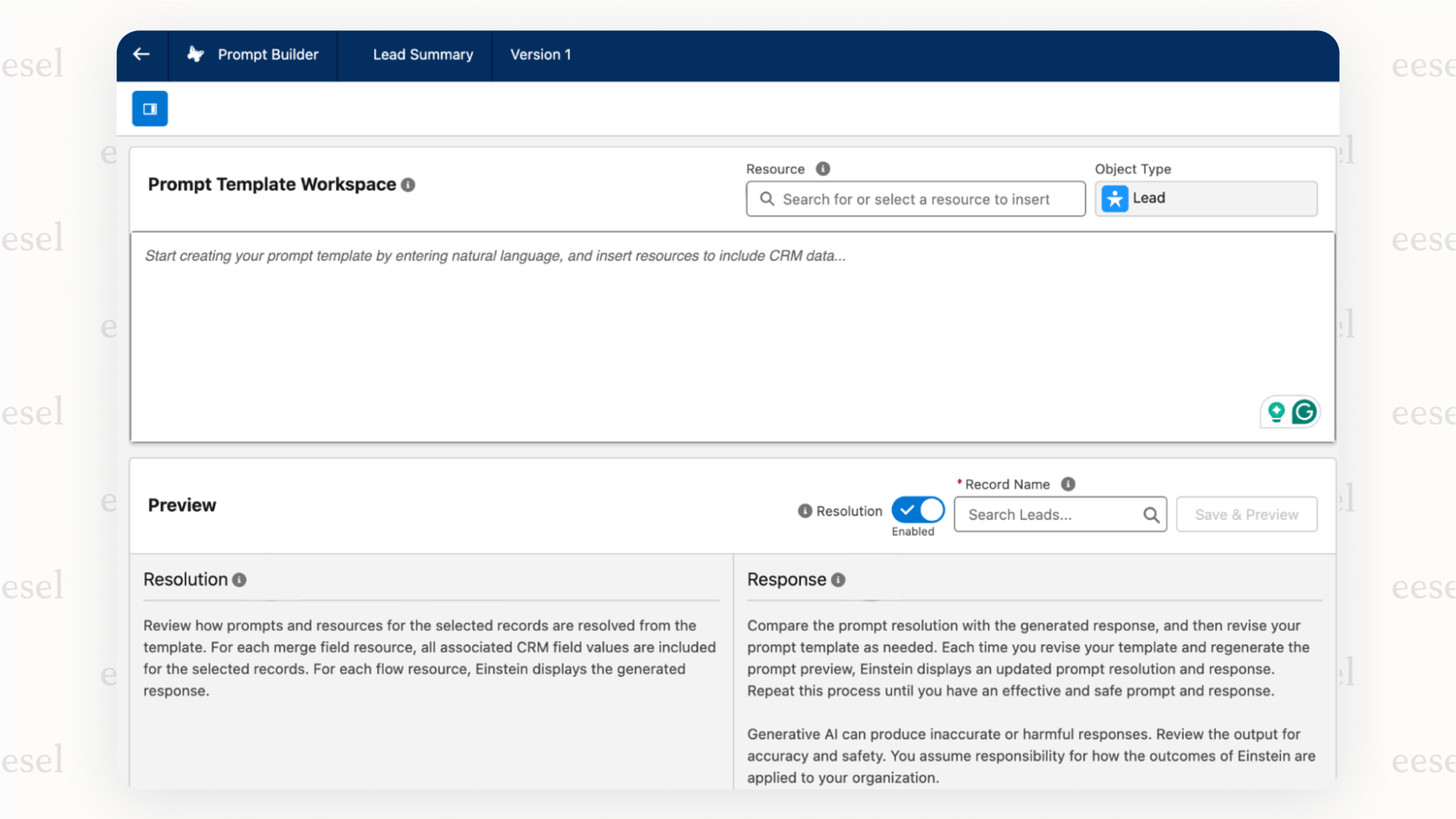
Getting certified: Does Salesforce AI require coding for the AI specialist exam?
If you need more proof, just look at the Salesforce AI Specialist certification. People often ask if they need to know Java or Apex to pass, and the community’s answer is a clear "no."
Based on what certified professionals have shared, here’s what to expect:
The exam doesn't try to trick you with coding questions. It’s all about knowing the Salesforce AI product lineup. In fact, many users say it’s not too difficult, rating it around a 4/10 or 5.5/10. Your success hinges on understanding the difference between tools like Call Summary and Call Insights and knowing which one to use in a given situation. It’s about product knowledge, not technical wizardry.
The best way to prepare is to jump into a Trailhead playground and start messing around with tools like Prompt Builder and Agent Builder. It’s all hands-on configuration, which is a super valuable skill on its own.
When the answer to 'Does Salesforce AI require coding' is yes
While the no-code path can take you far, there are times when you need to dig a little deeper. When you get into heavy customization, tricky integrations, or unique business rules, that's when Salesforce’s developer tools (and a bit of code) come into play. This is the world of developers or admins looking to add some technical skills to their resume.
For Salesforce developers: Answering 'Does Salesforce AI require coding' with AI assistance
For developers, Salesforce AI isn't here to replace them; it's more like a partner. The main tool for this is Einstein for developers, an AI assistant that helps you write better code, faster. It’s already making a big impact. One report even noted that AI already writes 20% of Salesforce's APEX code, which shows just how much it's being used as a productivity tool for coders.
Einstein for Developers can help you:
-
Generate Apex code from a simple, natural language request.
-
Autocomplete LWC (which includes JavaScript, CSS, and HTML) as you type.
-
Create unit tests to make sure your code is solid.
-
Explain a confusing block of existing code, which is a lifesaver when you're jumping into a new project.
In this scenario, AI speeds up the coding process, but the developer is still in the driver's seat. You still need to understand the code, check the AI’s work, and be responsible for the final result.
Building custom actions: When does Salesforce AI require coding?
Coding becomes a must when you start pushing the limits of the point-and-click tools. Here are a few situations where you'll need to call in a developer:
-
Custom actions in Agent builder: You can build simple agents with clicks, but what if you want an agent that can look up order information in an external system or kick off a process in another application? That’s going to require calling Apex code or a MuleSoft API.
-
Advanced automations: If a business process is just too quirky or complex for Flow Builder, developers will step in to write Apex triggers and classes to handle the custom logic.
-
Troubleshooting: As any seasoned admin knows, some problems are buried deeper than the UI can show you. Having a basic understanding of code can help you work with developers to find and fix those tricky, deep-seated issues.
Bypassing the 'Does Salesforce AI require coding' question with eesel AI
While Salesforce offers a powerful platform that does a bit of everything, that size can also mean a steep learning curve and a lot of complexity. If your main goal is something specific, like automating customer support, a more focused approach might make more sense. This is where a platform like eesel AI really comes in handy.
Go live in minutes, not months, without a developer
The biggest difference you’ll notice is the speed and simplicity. A typical Salesforce project can involve weeks of Trailhead modules, consultant fees, and setup. eesel AI is built to be something you can handle entirely on your own.
-
Genuinely self-serve: You can sign up, connect your knowledge sources, and launch your first AI agent without having to sit through a single sales call or demo.
-
One-click integrations: Connecting to your help desk is a breeze. Whether you use Zendesk, Freshdesk, or Intercom, you can link your accounts in minutes without needing a developer to sort out APIs.
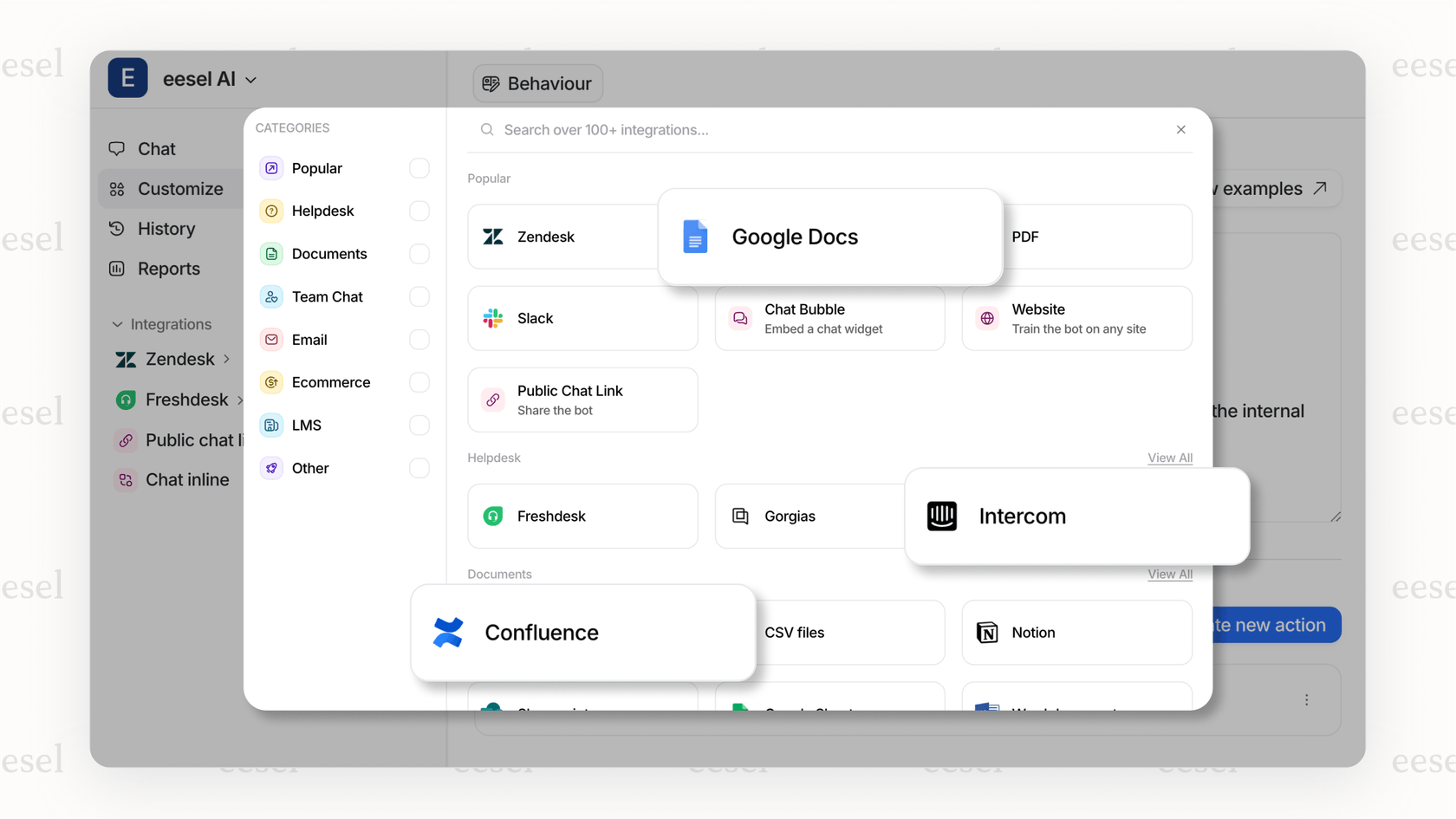
Unify all your knowledge, not just Salesforce data
Let’s be honest, customer knowledge is rarely stored in just one place. While Salesforce AI is great at using data that’s already inside Salesforce, most teams have information scattered across a bunch of different tools.
-
Connect all your sources: eesel AI instantly connects to over 100 sources, including popular tools like Confluence, Google Docs, and Notion. This gives your AI a complete picture of your company's knowledge, not just what's sitting in your CRM.
-
Train on past tickets: This is one of its most powerful features. It can automatically learn from your team’s past support conversations. It picks up on your brand voice, understands common issues, and learns the solutions that have worked before, all without any manual training or coding from you.
Test and deploy with confidence, no code required
Deploying AI can feel like a bit of a gamble. How do you know it’s actually going to work? eesel AI is designed to take the guesswork out of it.
-
Powerful simulation mode: Before your AI bot talks to a single customer, you can test it on thousands of your past support tickets. This gives you a really accurate forecast of its resolution rate and shows you exactly how it would have responded to real questions. You can go live feeling confident.
-
Granular control: Through a simple, visual dashboard, you can decide exactly which types of tickets the AI should handle (like "where is my order?" questions) and tell it to automatically escalate everything else to a human. No need for complex rules or code.
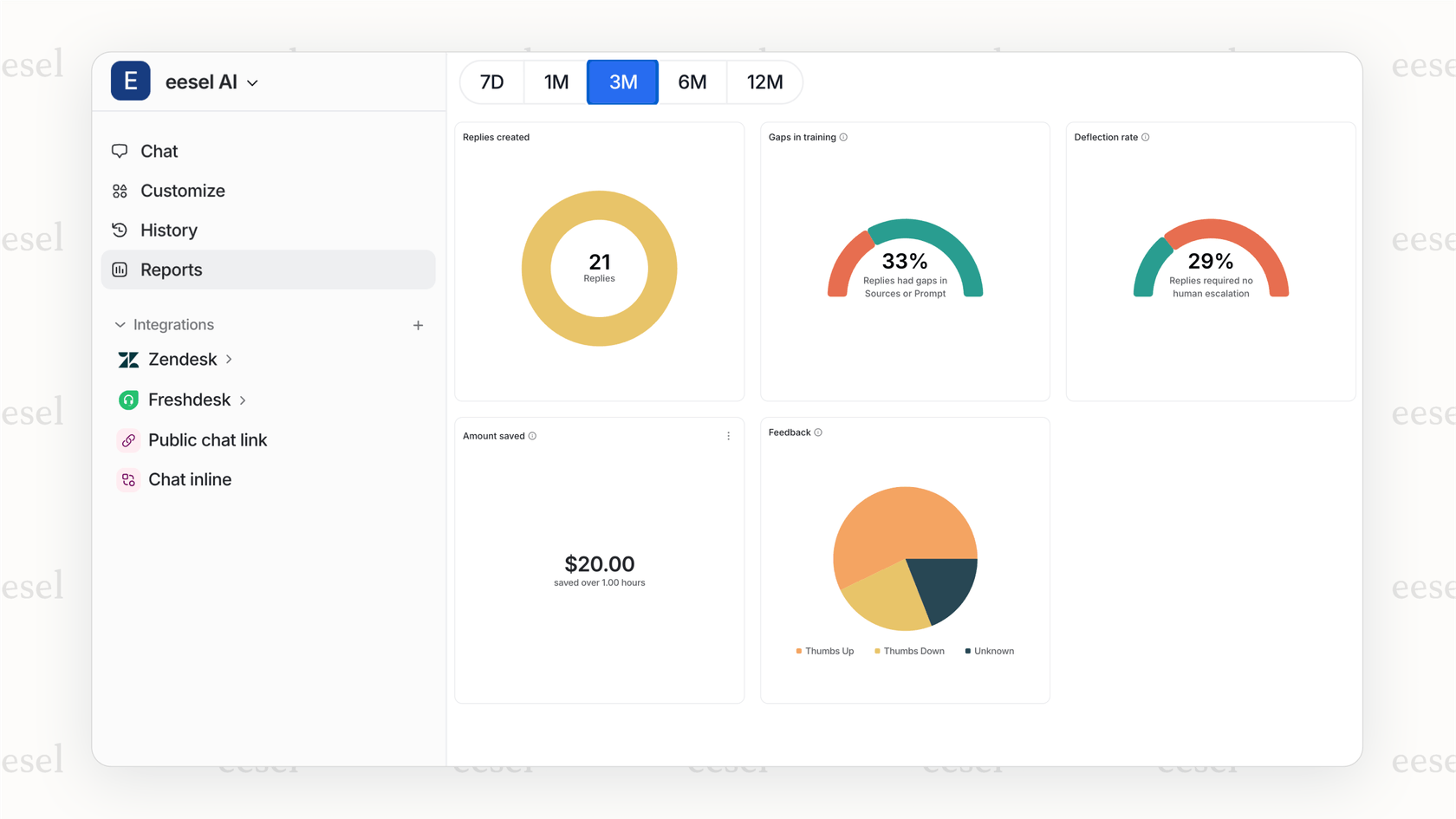
| Feature | Salesforce AI (Einstein) | eesel AI |
|---|---|---|
| Setup Time | Weeks to months; often requires Trailhead or consultants. | Minutes; completely self-serve with a guided dashboard. |
| Coding Requirement | No-code for basics, Apex/API knowledge for custom actions. | Zero coding required for setup, integrations, and actions. |
| Knowledge Sources | Best with data inside Salesforce; can connect to others. | Instantly connects to 100+ sources (help desks, wikis, docs). |
| Testing | Requires building and testing in separate sandbox environments. | Built-in simulation mode to test on historical data instantly. |
| Ideal For | Teams already using the Salesforce ecosystem for everything. | Teams who want fast, powerful, and code-free AI support automation. |
The future is low-code: A new perspective on 'Does Salesforce AI require coding'
And this isn't just a Salesforce thing. Across the tech world, AI is making powerful tools more accessible by handling the complicated code behind the scenes. As one Salesforce AI executive put it, having agency, the drive to find and solve a problem, is now "far more essential than learning how to code."
The most valuable skill today isn’t about writing perfect code; it's about understanding a business problem inside and out and knowing which tool to use to solve it. Low-code and no-code platforms are empowering more people to become these problem-solvers. This is the whole idea behind tools like eesel AI, which give you the power to build impressive solutions without needing a technical background.
Does Salesforce AI require coding? Your path forward
So, does Salesforce AI require coding? As we've seen, it really offers two different paths. Non-technical users can do an incredible amount with its point-and-click tools, while developers can use AI as a copilot to build things faster and better.
But the old advice to "learn to code" is starting to change. The future belongs to the problem-solvers. For important areas like customer service, platforms like eesel AI show that you don't need a team of developers to build powerful AI automation anymore. You just need a clear goal and the right tool for the job.
If your goal is to automate customer support quickly and reliably, without the headache of a massive platform implementation, you can get started with a tool built for exactly that.
Frequently asked questions
No, for basic AI features, Salesforce offers extensive no-code options. Administrators can leverage tools like Prompt Builder and Flow Builder to set up AI capabilities using a point-and-click interface, much like other declarative Salesforce configurations.
No, the Salesforce AI Specialist certification does not require coding knowledge. The exam focuses on product knowledge, understanding different Einstein AI tools, and knowing when to apply them in various business scenarios. Hands-on configuration in a Trailhead playground is the best preparation.
Yes, for deep customization, complex integrations, or building custom actions for AI agents, coding is often necessary. Developers use languages like Apex and tools like Einstein for Developers to extend functionalities beyond standard declarative capabilities.
While a developer still needs to understand code, Einstein for developers significantly reduces manual coding. It acts as an AI assistant, helping to generate Apex code, autocomplete LWC components, create unit tests, and explain existing code from natural language requests.
While Salesforce AI offers automation, platforms like eesel AI provide a faster, entirely code-free path for customer support automation. These tools allow you to go live in minutes, connect to diverse knowledge sources, and test performance without needing any development expertise.
Many advanced automations can still be built declaratively using Flow Builder, especially with its AI-powered generation features. However, for extremely quirky or highly complex business logic that pushes Flow Builder's limits, developers may need to write Apex code.
The blog suggests that while coding remains valuable for developers, "agency" , the drive to find and solve a problem , is becoming more essential. Low-code and no-code platforms, including parts of Salesforce AI, empower problem-solvers without requiring deep technical coding skills.
Share this post

Article by
Stevia Putri
Stevia Putri is a marketing generalist at eesel AI, where she helps turn powerful AI tools into stories that resonate. She’s driven by curiosity, clarity, and the human side of technology.







